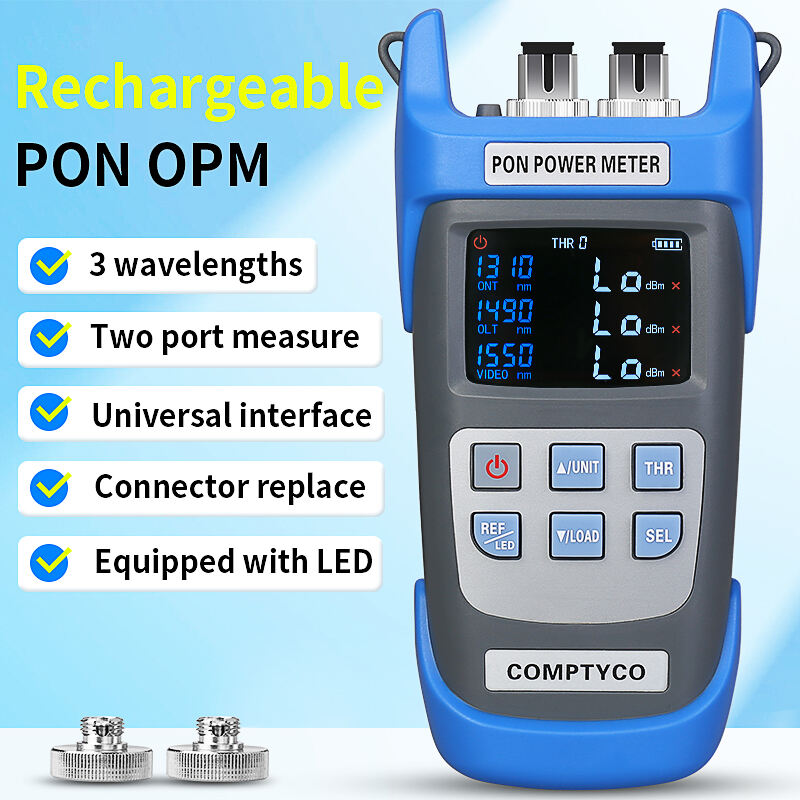optical power meter calibration
Optical power meter calibration is a critical process that ensures the accuracy and reliability of power measurements in fiber optic systems. This sophisticated procedure involves comparing the readings of a device under test with a reference standard to establish and maintain measurement accuracy. The calibration process encompasses multiple wavelengths commonly used in optical communications, typically including 850nm, 1310nm, and 1550nm. During calibration, technicians analyze and adjust the meter's response to various power levels, ensuring linear performance across its operational range. The process also includes verification of the meter's display accuracy, wavelength sensitivity, and detector response uniformity. Modern calibration systems employ automated procedures that reduce human error and provide detailed documentation of results. This calibration is essential for maintaining measurement traceability to national standards and ensuring compliance with international metrology requirements. The technology incorporates advanced features such as temperature compensation, real-time drift monitoring, and uncertainty analysis, making it indispensable for telecommunications, research laboratories, and manufacturing facilities where precise optical power measurements are crucial.


